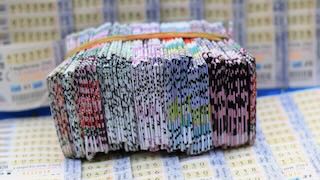NAHA, Mar 04 (News On Japan) - Heart failure is emerging as a major public health crisis in Japan, with experts warning of a "heart failure pandemic" by 2030 due to aging demographics and rising lifestyle-related diseases. In response, a medical startup originating from the University of the Ryukyus is developing AI-powered technology that could transform early detection and diagnosis.
At the recently relocated University of the Ryukyus Hospital in Ginowan, researchers are working on cutting-edge innovations aimed at extending healthy life expectancy. One of the key figures in this effort is Kusunose, a professor specializing in cardiology and the CEO of Southwood, a medical venture leading the development of a compact AI-powered device designed to detect heart failure at an early stage.
"Our goal is to create a tool that allows heart disease detection anytime, anywhere," Kusunose explained. "By leveraging AI, we can significantly reduce the training required for accurate diagnosis, making this technology accessible to more healthcare professionals."
Heart failure occurs when the heart's pumping ability weakens, preventing sufficient blood circulation throughout the body. Symptoms include shortness of breath, swelling, and fatigue, and if left untreated, the condition can be life-threatening. Despite Japan's declining population, the number of heart failure patients continues to rise, making early detection more critical than ever.
One major challenge in addressing this crisis is the difficulty of early diagnosis. A survey by Nikkei Medical found that over half of physicians lack confidence in their ability to diagnose heart failure accurately. Kusunose's AI technology aims to bridge this gap by automatically analyzing vast amounts of medical data. Using 1.8 million ultrasound images collected through partnerships with various universities, the AI can distinguish between healthy and failing hearts, highlighting abnormalities in a color-coded display. This enables even non-specialists to detect potential issues quickly.
The device, significantly smaller than traditional ultrasound machines, is also designed for use in small clinics and home healthcare settings. It could be particularly valuable in remote areas, where specialized medical resources are scarce. "If portable devices can provide the same diagnostic accuracy as expert evaluations, they could be a game changer for rural and island communities," Kusunose noted.
Southwood’s AI initiative has already gained national recognition, winning first place in a digital healthcare innovation competition among 110 entries. The company is currently navigating the regulatory approval process for AI integration, with plans to begin clinical trials by 2026.
"Our ultimate goal is to save lives," Kusunose emphasized. "If this AI technology spreads, it could become a vital tool not only in Japan but worldwide."
As Okinawa struggles with a high prevalence of cardiovascular diseases—the second leading cause of death in the region—this AI-driven approach could play a crucial role in improving patient outcomes. With Japan implementing healthcare labor reforms to ease the burden on physicians, AI-assisted diagnostics may offer both medical professionals and patients significant benefits. The upcoming clinical trials and regulatory approvals will be key steps toward bringing this groundbreaking technology to hospitals and clinics nationwide.
Source: 沖縄ニュースOTV















